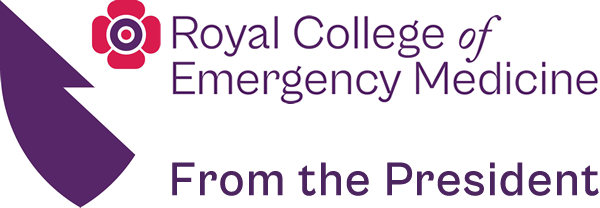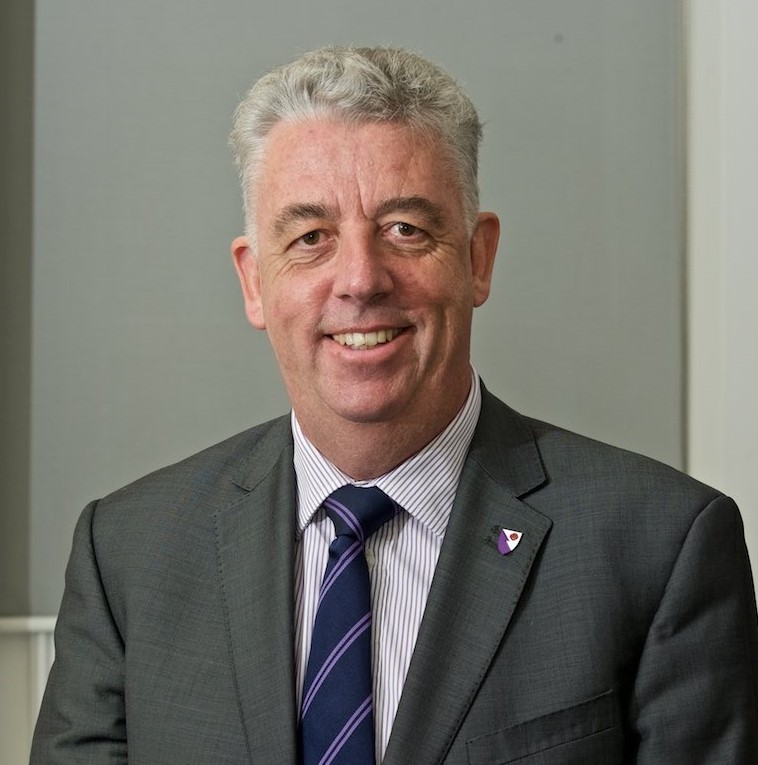July – and the prospect, for most, of some well deserved R&R, accompanied by the new intake of foundation doctors, core and higher trainees.
Importantly this year will see not only 100% recruitment into year one but an expansion of posts by almost 100, thus creating over 300 ACCS posts. Even more importantly there has been a marked reduction in the attrition rate at year 3. The introduction of the Defined Routes of Entry into Emergency Medicine has meant that several hundred surgical trainees are transferring into EM via a conversion year.
This means that this August there will be more trainees in EM training in the UK than ever before. This is probably the most important positive statement I have been able to make since I became President two years ago. If the College had a cellar, now would be the time to ‘pop the cork’!
We can also celebrate the revision of the marginal tariff – rising from 30% to 70%. This reform of the absurd ‘Buy one get two free’ means an additional £140 million of funds for acute care. We were told only a few months ago that the tariff was working well. It is another example of a sustained, reasoned argument eventually winning the day.
Further good news comes in the form of a key report by ECIST on behalf of NHS England and the Keogh Review. This report summarises the actions all participants in the urgent and emergency care sector must take to ensure the system works well. The report is refreshingly concise and didactic. Perhaps as important the report highlights what should not be done – thereby avoiding many of the expensive and largely useless ‘vanity schemes’ promoted hitherto.
Key components mirror the RCEM recommendations published in the summer of 2014 in our report “Acute and emergency care – prescribing the remedy’ and all of them are consistent with the components of the RCEM STEP campaign.
I would highlight three points – providing capacity to meet expected demand NOT average attendances (which self evidently mean the department is understaffed 50% of the time), eliminating Exit Block because it harms patients and providing co-located primary care services thereby decongesting the ED. In essence the report endorses three of the four STEPs.
This alignment of the RCEM and Keogh review positions demonstrates that the hard work over the past few years has indeed been well worthwhile. Moreover the College continues to exercise its role as the voice of the specialty. Acknowledgement of the significance of this was an invitation to meet with the Secretary of State to discuss matters of concern within a week of the election result.
The election result and subsequent cabinet appointments has meant that the incumbent minister and his team cannot claim to have ‘only recently taken on the health portfolio’ and I have been able to ‘continue where we left off’ rather than starting again. There is of course much still to do.
Our current focus relates to tariffs – which I acknowledge only apply to England. Monitor and NHS England have proposed a new model in which there are three components; core funding, a percentage uplift for increased attendances and a ‘whole system’ quality component. Last year I was quoted in the HSJ as saying this risked being a ‘block contract with decorations’. We were assured that core funding would represent the costs of running the core service (staffing, equipment, estate costs). Imagine then my lack of surprise when it transpired that core funding was actually to be based on historical funding; thus perpetuating the extraordinary and unacceptable variation in ED funding. Rest assured we have submitted a robust response to the draft proposals and our concerns have been expressed in person to the Secretary of State.
I have also recently met with Danny Mortimer the chief executive of NHS Employers to discuss the concerns of the College regarding equitable contracts to support sustainable careers. Our conversation was productive – helped considerably by the NHS Confederations’ own report “Emergency Care – an accident waiting to happen’’ which concluded with the following recommendations
- The Department of Health and Health Education England should launch a national initiative to incentivise clinicians to work in A&E as soon as possible, so that senior decision-makers are placed at the heart of emergency care.
- More detailed work should be carried out to understand the impact of pressured A&E departments on staff morale and productivity.
These successes are not a presage to complacency, quite the reverse. The policies and actions of the College are making a real difference to recruitment, retention, payment systems and patient flow. Our success to date emboldens us to continue our ‘clear, concise and constructive’ strategy. The College, like the government, has a mandate and it will continue to pursue this mandate for the mutual benefit of our patients and EM staff throughout the UK and Ireland.
Dr Cliff Mann FRCEM FRCP
President
The Royal College of Emergency Medicine
@RCEMPresident


